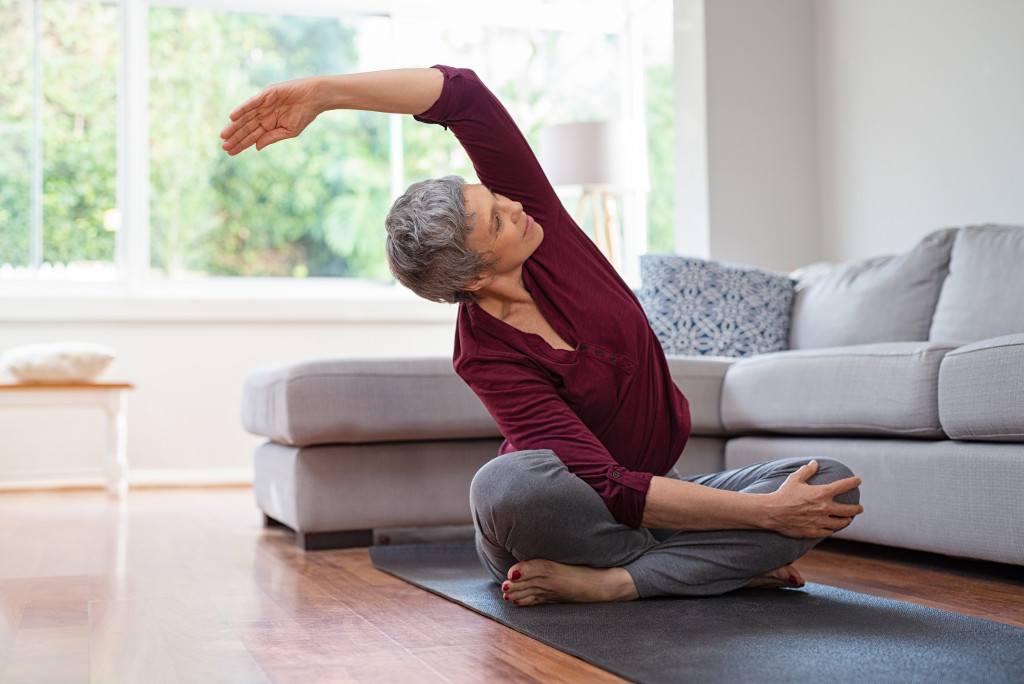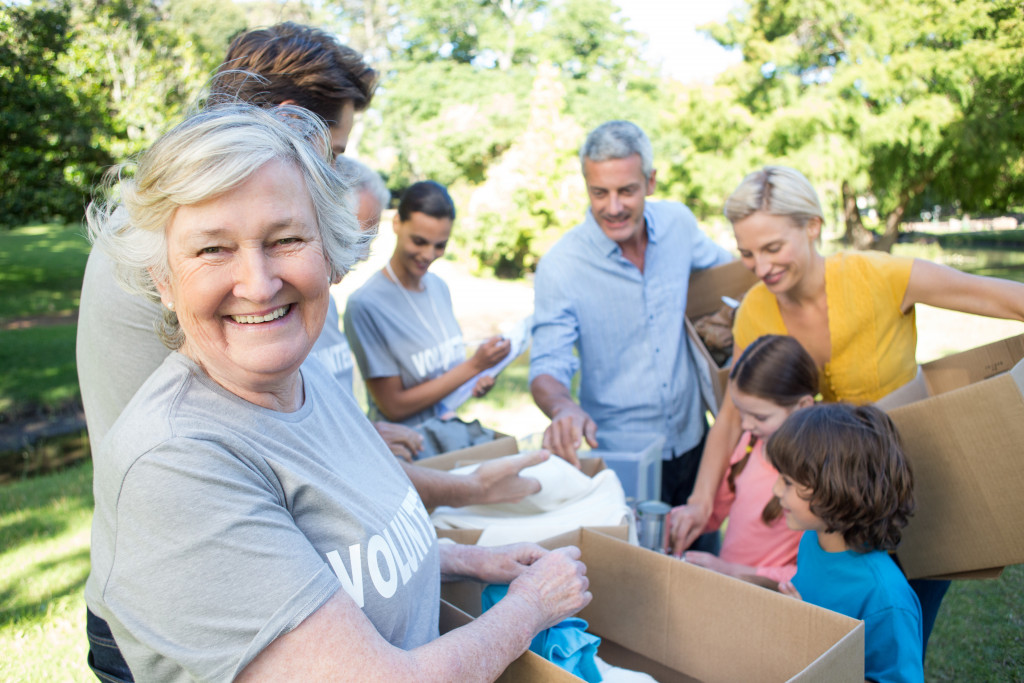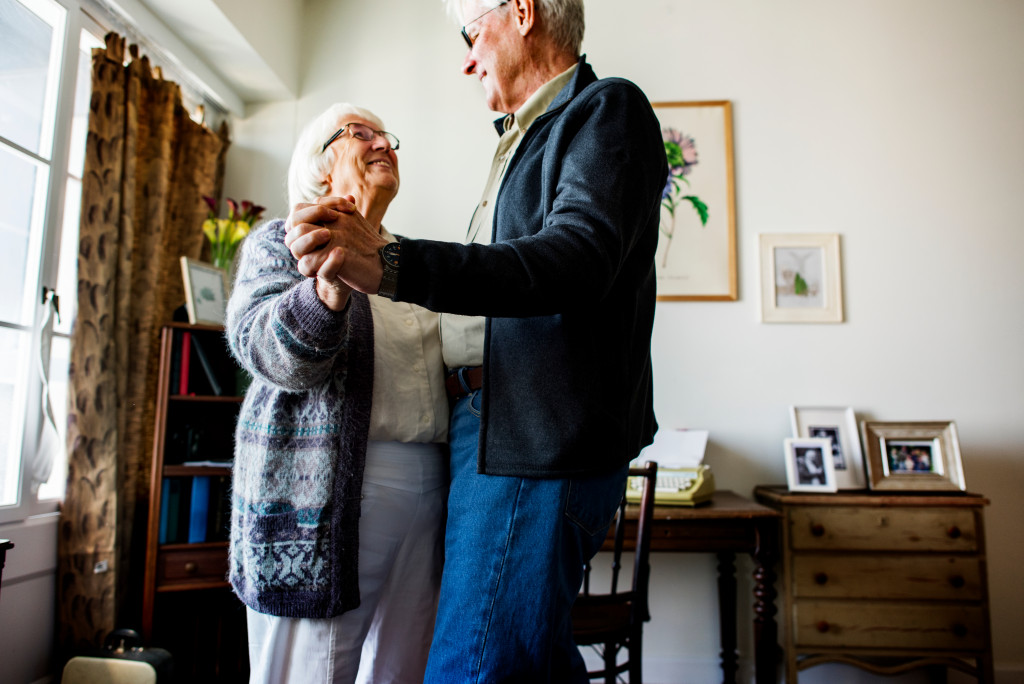Disclaimer: The Lifestyle Elf. This site provides fashion and lifestyle content for informational purposes only.
- Stay on top of regular medical check-ups to identify any health issues that may affect physical activity.
- Exercise regularly, including walking, strength training, dancing, and yoga. You can also try balance and strength training exercises.
- Stay hydrated and nourished with a well-balanced diet full of fruits, vegetables, lean proteins, and whole grains.
- Remain socially engaged by joining fitness classes or groups, volunteering, or taking classes.
- Try occupational therapy to identify areas of weakness and gain adaptive skills for better mobility.
Staying active as you age is crucial for maintaining overall health and preventing deconditioning, which is a gradual decline in physical function. Regular exercise helps keep your heart and lung healthy, your muscles toned and strong, and your mind sharp.
However, as you get older, it can be easy to fall into a sedentary lifestyle, especially if you have health limitations or mobility issues. In this blog, you will learn tips to help older adults prevent deconditioning and continue to lead active, independent lives.
Stay on top of regular medical check-ups.
One of the most effective ways to prevent deconditioning is to stay on top of your health. Regular check-ups with your doctor can help identify any health conditions that might affect your ability to stay active, such as heart disease, diabetes, or arthritis. Your doctor can work with you to develop a safe, effective exercise plan that takes into account any health limitations you may have.
Make exercise a daily habit.
Regular daily exercise is essential for maintaining overall health and preventing deconditioning. You need to have at least thirty minutes of moderate-intensity exercise five days per week. However, exercising can be difficult for some older adults. Fortunately, there are plenty of activities that can be done at home with minimal equipment and no additional cost. Examples include the following:
Walking.
Walking is one of the most effective forms of exercise and is excellent for all fitness levels. Start by walking for ten minutes at a time, gradually increasing your intensity and distance as you get stronger.
Strength training.
Strength training is essential to help maintain muscle mass and strength. You can try bodyweight exercises like squats, lunges, push-ups, and planks. You can also use resistance bands or free weights if available.
Dancing.
Dancing is an excellent form of exercise that can be done at home or in a group setting. It is low-impact and helps improve balance, coordination, and posture.
Yoga.

Yoga helps improve flexibility, strength, and balance. There are many beginner yoga classes available online or at your local fitness center. Yoga can be done in the comfort of your own home at no additional cost.
By ensuring you get enough exercise per week, you can prevent deconditioning and maintain your physical health.
Focus on balance and strength training.
As people age, their balance naturally declines. However, incorporating balance training into your exercise routine can help prevent falls and maintain muscle mass. Simple exercises like standing on one foot or doing heel raises can benefit older adults. If you’re unsure about how to get started with balance training, consult a physical therapist or personal trainer.
Stay hydrated and well-nourished.
Proper hydration and nutrition are crucial for maintaining physical function. As you age, your body loses water more slowly, so drinking plenty of fluids throughout the day is essential. Eating a well-balanced diet with plenty of fruits, vegetables, lean protein, and whole grains can also help ensure your body has the nutrients to stay healthy and strong.
Stay socially engaged.

Social isolation can significantly contribute to deconditioning, as it can lead to a decline in physical activity and cognitive function. Staying socially engaged can help prevent deconditioning by providing opportunities to stay active, mentally stimulated, and connected with others. Joining a fitness group, volunteering, or taking a class can be great ways to stay engaged and active.
Try occupational therapy.
If you have any difficulty with daily activities or specific physical limitations, occupational therapy can help. An experienced occupational therapist can work with you to identify areas of weakness and provide exercise recommendations tailored to your needs. Occupational therapy can also teach adaptive skills and provide equipment such as walkers or wheelchairs to help improve your mobility.
Staying active and healthy as you age is essential for preventing deconditioning. By following these tips, older adults can maintain their physical health and independence: staying on top of regular medical check-ups, making exercise a daily habit, focusing on balance and strength training exercises, staying hydrated and nourished, staying socially engaged, and trying occupational therapy if needed. With the right lifestyle choices, leading an active life even into your later years is possible.

